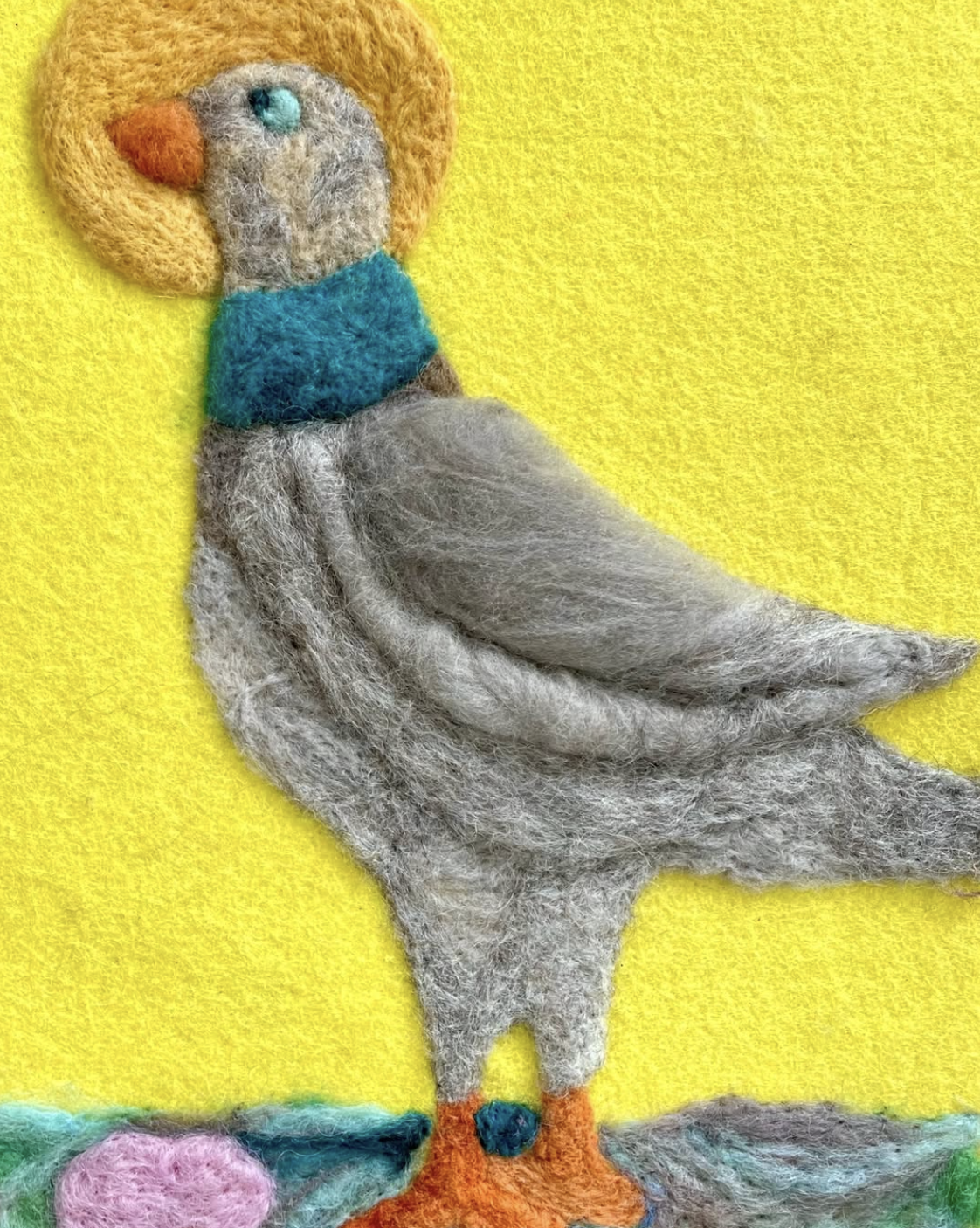 Image 1 of 1
Image 1 of 1


Felted Pigeon
Pigeons are not quite as humanlike as dogs, but they are bred even better than Labrador puppies to accompany us.
They love us because we’ve trained them to. They’re in our spaces because we wanted them to be.
Now that their résumés are outdated, most people would love to send them to a pigeon nursing home where they could be out of sight, mind, and moral reflection.
But in our plazas they stay, useful only as reminders of our failure to care for the animals we bred to care for us.
Perhaps the problem with those “rats with wings” (and the ones without!) lies with us, not them.
Someday I’m not going to be useful. You’re not either. Even with impeccable health and a job that shines in a capitalistic framework, everyone gets old. Everyone gets sick. Everyone wonders how others—even loved ones—will treat them when they can’t provide what they used to.
People used to prize pigeons so highly that the hoity-toity elite would proudly display their pets in windows of living rooms as a status symbol.
Then, when pigeons became working class, they received the same public praise and even medals that firefighters, teachers, and soldiers are awarded for a generous job well done.
Now most buildings have spikes so pigeons can’t land. They survive on literal garbage that is terrible for their little bodies. When they hover over sidewalk grates for warmth, people stomp them away—or worse.
Every day in New York, I see pigeons with drooping wings; broken beaks; damaged feet; in winter, frostbite; in summer, dehydration; in all seasons, suffering.
But in various parks around NYC, a friend to pigeons is someone who the rest of us may think of as “not mentally there” enough to hold a job.
It’s no surprise that they find companionship with an intelligent, compassionate, physically beautiful species who has been cast aside as a nuisance, and no longer "useful."
Pigeons are not quite as humanlike as dogs, but they are bred even better than Labrador puppies to accompany us.
They love us because we’ve trained them to. They’re in our spaces because we wanted them to be.
Now that their résumés are outdated, most people would love to send them to a pigeon nursing home where they could be out of sight, mind, and moral reflection.
But in our plazas they stay, useful only as reminders of our failure to care for the animals we bred to care for us.
Perhaps the problem with those “rats with wings” (and the ones without!) lies with us, not them.
Someday I’m not going to be useful. You’re not either. Even with impeccable health and a job that shines in a capitalistic framework, everyone gets old. Everyone gets sick. Everyone wonders how others—even loved ones—will treat them when they can’t provide what they used to.
People used to prize pigeons so highly that the hoity-toity elite would proudly display their pets in windows of living rooms as a status symbol.
Then, when pigeons became working class, they received the same public praise and even medals that firefighters, teachers, and soldiers are awarded for a generous job well done.
Now most buildings have spikes so pigeons can’t land. They survive on literal garbage that is terrible for their little bodies. When they hover over sidewalk grates for warmth, people stomp them away—or worse.
Every day in New York, I see pigeons with drooping wings; broken beaks; damaged feet; in winter, frostbite; in summer, dehydration; in all seasons, suffering.
But in various parks around NYC, a friend to pigeons is someone who the rest of us may think of as “not mentally there” enough to hold a job.
It’s no surprise that they find companionship with an intelligent, compassionate, physically beautiful species who has been cast aside as a nuisance, and no longer "useful."